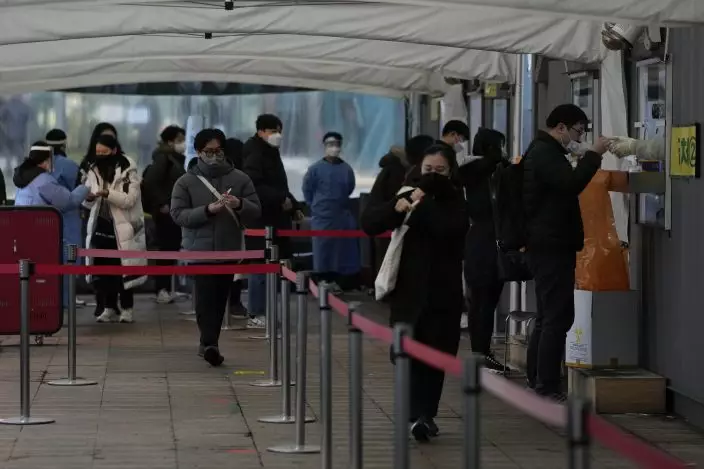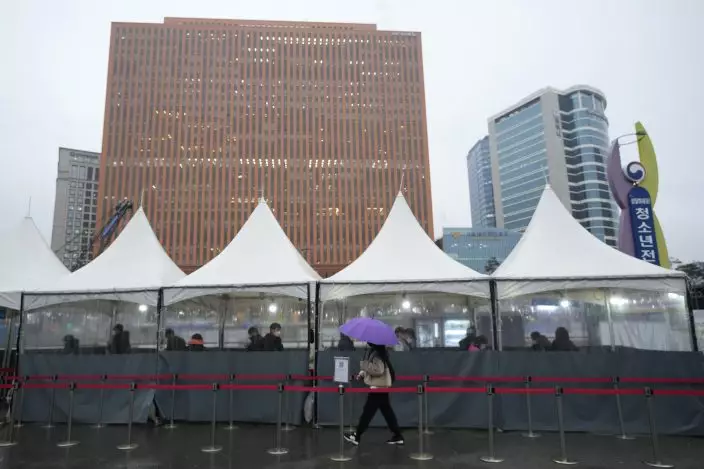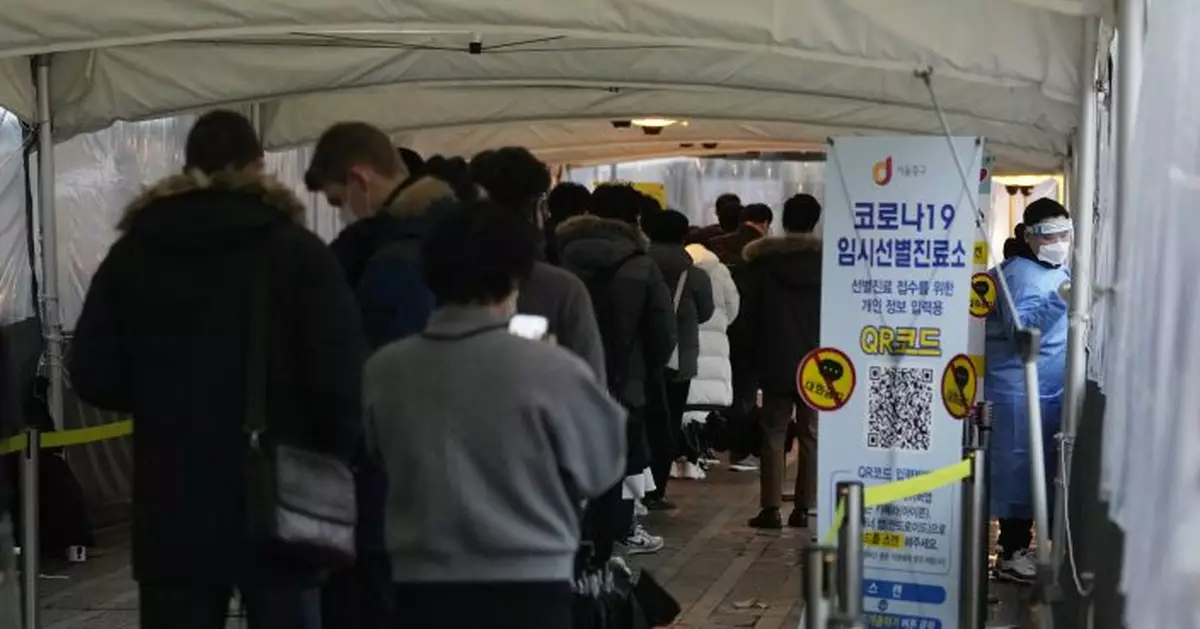South Korea recorded more than 8,000 new coronavirus infections for the first time Tuesday as health authorities reshape the country's pandemic response to address a surge driven by the highly contagious omicron variant.
The 8,571 new cases reported by the Korea Disease Control and Prevention Agency followed three straight days exceeding 7,000. With omicron spreading more than twice as fast as the delta strain that cause the last surge, experts say new cases may exceed 10,000 this week and possibly 20,000 after the Lunar New Year’s holiday break that begins this weekend and continues to next Wednesday.
To prevent a sudden explosion of infections from overwhelming hospitals and disrupting workplaces and essential services, South Korea will reduce quarantine periods, expand testing and treat more people at home.

Medical workers in booths take nasal samples from people at a makeshift testing site in Seoul, South Korea, Tuesday, Jan. 25, 2022. (AP PhotoAhn Young-joon)
From Wednesday, the quarantine periods for people who test positive after being fully vaccinated will be reduced from the current 10 days to seven days. Fully vaccinated people who comes in close contact with virus carriers won't be placed under quarantine. Officials are also planning to treat a larger number of mild or moderate cases at home and expand the use of rapid antigen tests to detect more infections sooner.
Omicron has become the dominant variant in many countries and more easily infects those who have been vaccinated or had COVID-19 previously. But vaccination and booster shots still provide strong protection from serious illness, hospitalization and death.

People wait for their coronavirus test at a makeshift testing site in Seoul, South Korea, Tuesday, Jan. 25, 2022. (AP PhotoAhn Young-joon)


